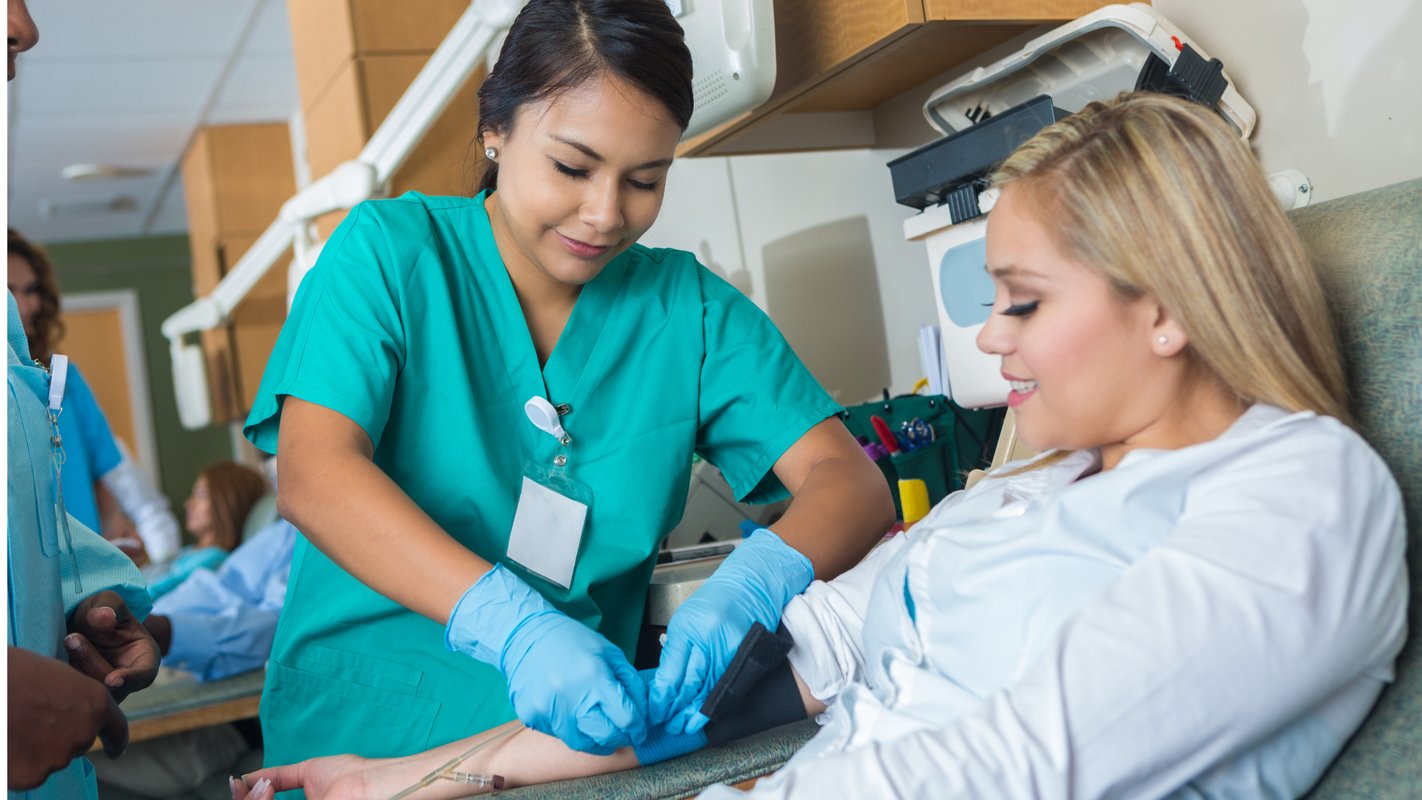How to Become a Phlebotomist in Iowa

Considering a career in phlebotomy? As a phlebotomist, you'll draw blood for medical tests and treatments. This guide covers what phlebotomists do, where they work, and how to become certified in Iowa. With the right phlebotomy classes, you can secure phlebotomist jobs and earn a competitive phlebotomy salary. Start your journey in this essential healthcare role today.
Key Points
- Phlebotomists are healthcare professionals who draw blood from patients for tests, transfusions, or donations.
- Phlebotomists can work in various healthcare environments such as hospitals, clinics, laboratories, blood donation centers, and doctor's offices.
- To become a Phlebotomist in Iowa, you need to complete an accredited training program, followed by passing a certification exam from a recognized organization. This process usually takes a few months, making it a relatively quick way to enter the healthcare field.
- Most phlebotomy training programs last between 4 to 8 months, with some accelerated options available that can be completed in as little as 4 to 6 weeks.
- In Iowa, the average phlebotomist salary is $39,750 per year.
Where to Find Phlebotomy Classes in Iowa
For a streamlined search of accredited phlebotomy training programs, Dreambound offers a user-friendly platform where you can compare program costs, schedules, and formats (in-person or online). Visit Dreambound to get started.
Career Paths and Opportunities after Becoming a Phlebotomist
With a Phlebotomy certification, you can pursue a variety of career paths, including working as a Phlebotomist in a hospital, clinic, or laboratory setting. Some Phlebotomists may also choose to become the following:
-
Phlebotomy Supervisor or Manager: Oversee other phlebotomists, ensure quality control, and manage department operations.
-
Laboratory Technician or Technologist: Perform and analyze laboratory tests, interpret results, and work closely with healthcare professionals.
-
Medical Assistant: Combine phlebotomy skills with administrative and clinical tasks, including taking patient histories and measuring vital signs.
-
Further Education: Use your phlebotomy experience as a foundation for advanced careers such as a nurse or medical laboratory scientist.
-
Instructor: Teach and train future phlebotomists, sharing your expertise and experience in the field.
Frequently Asked Questions
How long does it take to become a Phlebotomist in Iowa?
Most training programs last 4–8 months, and certification can be completed in under a year.
How much does a phlebotomist make in Iowa?
Phlebotomists in Iowa earn about $39,750 per year, depending on experience and workplace.
What is the shortest time to become a Phlebotomist?
Yes! Accelerated programs allow you to become certified in just 4–6 weeks.
What qualifications do you need to be a Phlebotomist in the US?
To be a Phlebotomist in the US, you need to complete a phlebotomy training program that includes both classroom instruction and hands-on clinical experience. The program must be accredited by a recognized organization. After finishing the training, you must pass a certification exam from a recognized body like the National Phlebotomy Association or the American Society of Phlebotomy Technicians. Additionally, some states might have specific requirements, so it’s important to check the regulations in your state.
Final Thoughts
Becoming a phlebotomist in Iowa is a rewarding career path that offers quick entry into the healthcare field. By completing an accredited training program and earning certification, you can open the door to numerous job opportunities in hospitals, clinics, and laboratories.
Ready to take the next step? Explore Iowa phlebotomy classes on Dreambound today and start your journey toward a fulfilling career in healthcare.
If you're thinking of a new career path, Dreambound offers in-depth guides to understand various job choices:

Athena is Co-founder and CEO of Dreambound.




